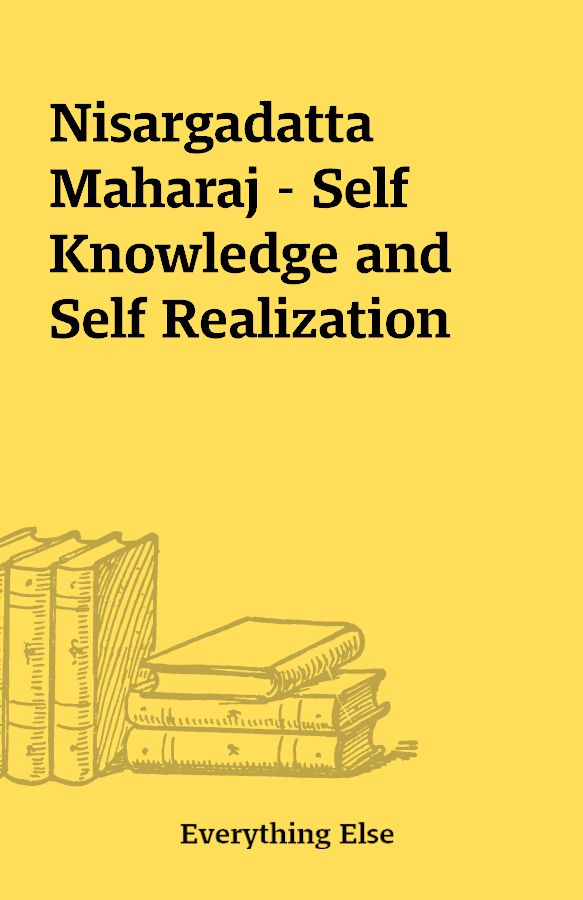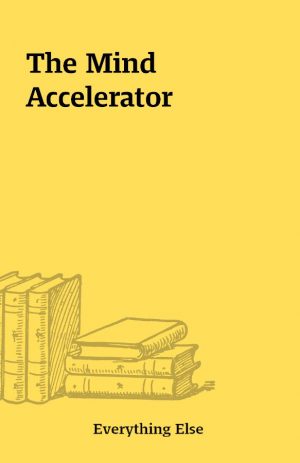Nisargadatta Maharaj – Self Knowledge and Self Realization
Nisargadatta Maharaj – ebook – Self Knowledge and Self Realization (1963).pdf
[1 eBook – PDF]
Description
Self Knowledge and Self RealizationbyNissargadatta MaharjEdited byJean DunnIntroduction by Ed Muzika Below is small book written by Nisargadatta. As indicated by Jean in her editor’s notes, it was published in 1963. There were 100 copies of this book printed by her. She gave 20 or so copies to friends and students and one to me. For some reason she decided not to give any more out. It has never been published in the West. Therefore, you are among the first to see it. Jean was never able to find anyone who claimed ownership of the copyrights. Concerning copyrights, I am still amazed by the battles that have surrounded the writings teachings of all the well-known spiritual teachers even while they were alive let alone after they were dead. Therefore, I have been scrupulous in only posting stuff on this site that I had long ago copyrighted, was written by me, was already in the public domain such as the Heart Sutra, or which is included by permission, such as the Ashtavakra Gita.Jean told me it is hard to recognize the later Nisargadatta in this book as the style is so devotional and traditional Indian. True. But Maharaj is there.This book is copied exactly as printed with all the absent commas and spellings as found in the original. Those accustomed to the bold pronouncements on the nature of reality found in his later talks might be surprised by the obvious bhaktic melody throughout this little book. It is also obvious that this is the autobiography of Maharaj’s awakening, not his early teaching. It is a love song both to himself and to his guru. One might ask, What happened to the Bhakta?I have no idea of what Maharaj was like before he met his teacher. Perhaps he was rude and acerbic then, had a brief period of bhaktic immersion, then reverted to his pre-awakening personality. So, is his later public persona a teaching style, also used by tons of Zen masters (priests, rabbis, sheiks, sifu, etc.), or did he just have a raggedy personality which returned?I dont know. If I were to guess, I would lean towards the latter view. Everyone I know who has seen this book has a different theory; all are speculative. I wish I had had more time to talk to Jean about what he was like. In a larger sense, who cares? His personality is not important in a teaching sense, although this issue may be very important to someone who wants to understand the enlightenment process clinically.For most of us, it is what his words do to us that is important. This little book speaks to many who have been closed out by the content and style of his later talks.I want to make one thing absolutely clear. Nisargadatta was filled with devotion immediately after the attained. He was never a talking head. He had formal chnating five times a day until he died. The chanting libretto contained the teachings. he would repeat certain phrases over and over. The Bhakta is extremely important for most of us. Zen monks were incredibly fixated on their teachers, and live dthe life of monks, who always chanted.Robert too loved chanting, as did Ranjit, Nisargadatta’s spiritual brother (sadguru.com). I am always amazed why so few of those who read Nisargadatta resist chanting.
You must be logged in to post a review.






Reviews
There are no reviews yet.